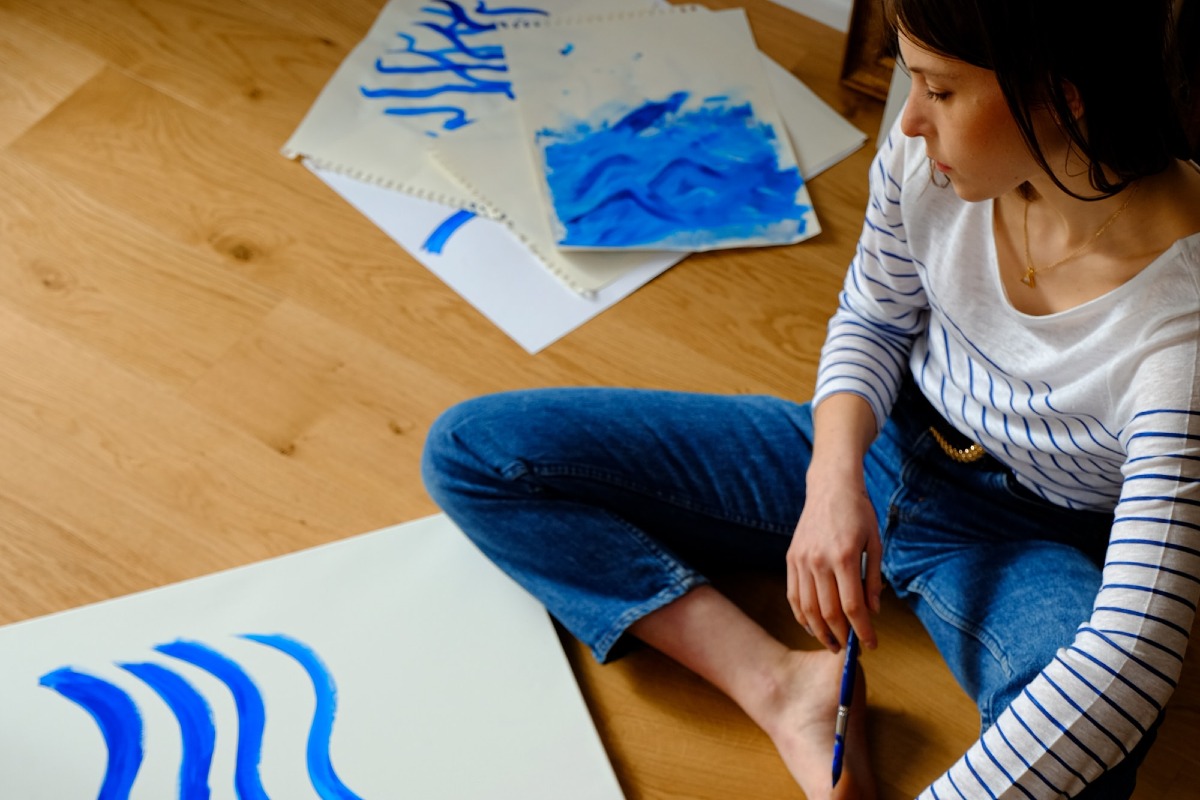How Can Art Therapy Help Women Overcome Postpartum Depression?
It can be difficult for a woman to differentiate typical post-birth symptoms from the effects of postpartum depression. One can easily overlook their symptoms or assume they have the temporary “baby blues.” Prolonged feelings of deep sadness may be a red flag for postpartum depression. The effects of the mental health condition can significantly impair a female’s ability to function on a daily basis. Although this may be true, there is much value in art therapy. Participating in art-based interventions can be an effective alternative to standard treatment options and can help one overcome postpartum depression. If a woman has a more severe case of postpartum depression, combining art therapy with traditional treatment options can be an effective way to enhance their recovery process.
What Is Postpartum Depression?
According to the Office on Women’s Health (OASH), shortly after delivering a baby, a female may experience intense feelings of sadness or paranoia. The baby blues typically subside within just a few days. If they do not go away within two weeks an individual may be at an increased risk of developing postpartum depression.
The effects of postpartum depression can negatively interfere with many different areas of one’s life. In some cases, a woman may not feel a strong bond with their child after giving birth. Sometimes a woman may not feel as if they are the child’s mother. Some women facing challenges with postpartum depression may not feel love or care for their baby as expected. These emotions can range from mild to moderate or severe.
Symptoms of Postpartum Depression
Not everyone will experience the exact symptoms associated with postpartum depression. For example, a woman who has delivered a baby out of wedlock or without their partner may experience intense effects of the condition. Perhaps a female has suffered from domestic violence. Her postpartum depression may be more severe than other women. Maybe a woman delivered her baby months after her spouse passed away. These scenarios may put one at risk of developing a severe case of postpartum depression.
Regardless of what phase one may be in before the onset of their mental health condition, postpartum depression symptoms should never be overlooked. It can happen to anyone despite having a history of trauma. Referring to the aforementioned OASH publication, common symptoms associated with postpartum depression often include:
- Experiencing extreme mood shifts
- Having fluctuating eating habits
- Intense feelings of hopelessness
- Having great feelings of shame, guilt, or worthlessness
- Sleeping less or more than usual
- Having episodic crying spells
- Experiencing a loss of interest in activities one used to enjoy
- Isolating from friends or family members
- Having possible thoughts of harming oneself, the baby, or others
Overcome Postpartum Depression With Art Therapy
The postpartum phase can be a vulnerable stage for a majority of women. Adjusting to parenthood after giving birth can be a chaotic time for some first-time parents. This can be especially so for those who have multiple children to care for. A parent’s lifestyle completely changes.
Based on a study by Frontiers in Psychiatry, art therapy has been proven to help women overcome postpartum depression. According to recent evidence, about 2, 815 participants found that art therapy interventions greatly decreased feelings of anxiety in those who were diagnosed with postpartum depression. Although the art intervention duration and chosen music by the participants did not relieve symptoms related to their stress as expected, certain interventions soothed intense anxiety and depression for those with a postpartum depression diagnosis. Approximately 11.9% of women face problems with depression during pregnancy. Thus, they are at an increased risk of developing postpartum depression after delivery.
Moving Forward With Art Therapy at Restoration Recovery to Overcome Postpartum Depression
Choosing to participate in art therapy at Restoration Recovery can be an effective outlet for women who are looking to overcome postpartum depression. Art-based interventions are a holistic treatment option that is nonpharmacological. Therefore, there are no harmful side effects involved in perusing therapy. Partaking in unique art therapy activities demands less time and energy than the standard treatment options for postpartum depression. One may experience greater benefits through participating in art therapy and attending other holistic programs. These include:
- Partial hospitalization program (PHP)
- Inpatient rehab
- Intensive outpatient program (IOP)
- Outpatient treatment
- Aftercare services
Benefits of Participating in Art Therapy at Restoration Recovery
Restoration Recovery incorporates art media into a woman’s treatment plan. Some individuals feel hesitant to move forward with individual therapy. Art therapy helps women better communicate their challenges and express their emotions without making them feel directly interrogated in session. Holistic care can give one a more whole-person approach. Art-based interventions at Restoration Recovery support an individual’s mind, body, and spirit to enhance their recovery process. The benefits of participating in art therapy to overcome postpartum depression at Restoration Recovery include:
- Reduced blood pressure
- Better quality of sleep
- Improved mood
- Relieved stress
- Improved interpersonal relationships
At Restoration Recovery, we are an intimate rehab near Sacramento. Located in Auburn, close to the foothills of the Sierra Nevada, we offer all levels of care. Our team of experienced and qualified therapists is ready to help you become a better version of yourself. We understand postpartum depression can be very difficult for some women to manage alone. Our art therapy services can help women overcome postpartum depression. You can expect to have your mind, body, and spirit integrated into addiction treatment. If you or a loved one lacks a strong support system, call Restoration Recovery at (888) 290-0925 to learn how our art therapy interventions can help you build healthy connections for your recovery.






